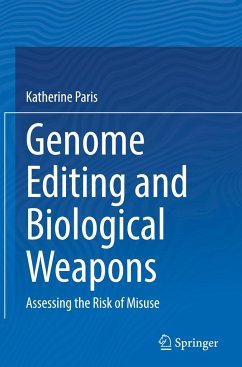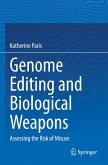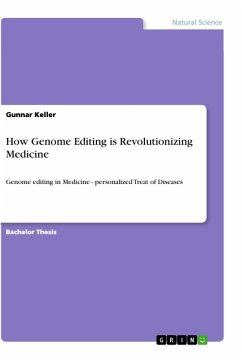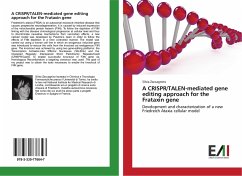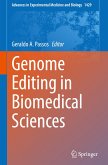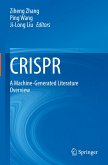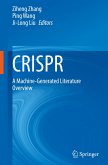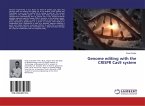This monograph introduces current genome editing technologies-clustered regularly interspaced short palindromic repeat (CRISPR)-CRISPR-associated (Cas) systems, transcription activator-like effector nucleases (TALENs), and zinc-finger nucleases (ZFNs)-and provides an assessment of the risk of misuse of these technologies based on the following parameters: accessibility, ease of misuse, magnitude of potential harm, and imminence of potential misuse. The findings from this assessment are applied to analyze and evaluate the threat posed by the intentional misuse of genome editing technologies to develop biological weapons. Furthermore, the book discusses the implications of misuse for different applications of genome editing, such as making existing pathogens more dangerous, modifying the human microbiome, weaponizing gene drives, engineering super soldiers, and augmenting the general population to confer economic advantages.
Technologies that enable genome editing with programmable nucleases-including CRISPR, TALEN, and ZFN-allow for the precise genetic modification of organisms and cultured cells. While these technologies are used for a variety of beneficial applications, intelligence and defense experts have raised concerns that genome editing technologies, especially CRISPR, could be misused to develop new and improved biological weapons. Furthermore, experts worry that the number and type of actors who could potentially misuse genome editing is dramatically increasing given the democratization of biology, which is allowing biology to become more accessible to everyone including nonexperts.
The book provides a comprehensive assessment of how feasible it is for users with different levels of knowledge and skill to acquire and then to apply the technologies to develop a biological weapon. It also provides an assessment of governability and a tailored set of recommendations that address security concerns. These recommendations are sensitive to the cost-benefit trade-off of regulating genome editing technologies. The book targets researchers as well as intelligence analysts, defense and security personnel, and policymakers.
Technologies that enable genome editing with programmable nucleases-including CRISPR, TALEN, and ZFN-allow for the precise genetic modification of organisms and cultured cells. While these technologies are used for a variety of beneficial applications, intelligence and defense experts have raised concerns that genome editing technologies, especially CRISPR, could be misused to develop new and improved biological weapons. Furthermore, experts worry that the number and type of actors who could potentially misuse genome editing is dramatically increasing given the democratization of biology, which is allowing biology to become more accessible to everyone including nonexperts.
The book provides a comprehensive assessment of how feasible it is for users with different levels of knowledge and skill to acquire and then to apply the technologies to develop a biological weapon. It also provides an assessment of governability and a tailored set of recommendations that address security concerns. These recommendations are sensitive to the cost-benefit trade-off of regulating genome editing technologies. The book targets researchers as well as intelligence analysts, defense and security personnel, and policymakers.

